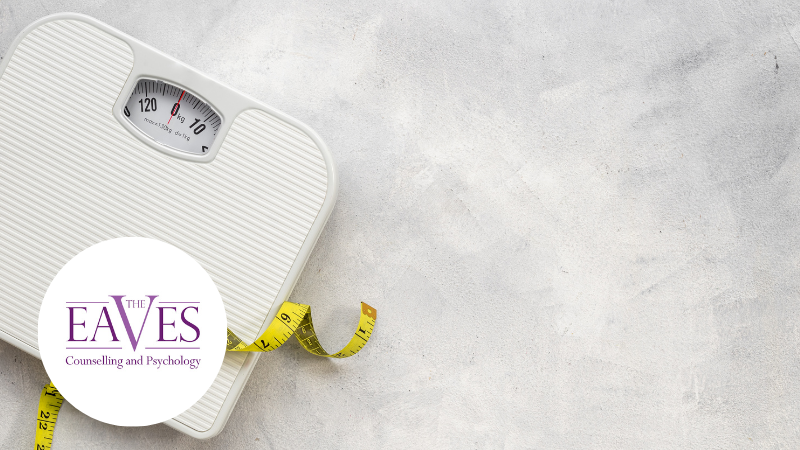Body Image and Health: How to Take Care of Ourselves in a Diet Obsessed World
By Philippa Whiting
Do you struggle to accept the way your body looks? Have you considered going on a diet? Do you feel like you should lose weight ‘for the sake of your health’?
If this sounds familiar you are not alone. Dieting is becoming the new normal and we are surrounded by people who are talking about weight loss, dieting, going on a detox or being “good” with their eating. The way we feel about food and our body can be fraught with complex feelings, including shame, fear, self-loathing and guilt.
The diet industry in the UK is worth an astounding £2bn a year. Like any business, its primary aim is to make a profit, so they tell us that our health is directly linked to our weight and they can help us get thinner, which will make us happier and healthier. It calls itself ‘wellness’ or a ‘lifestyle change’. It plays on our negative feelings about our body and tells us that we must carefully monitor our food intake and our weight, for the sake of our health – so if we follow their plan, we’ll become healthier, right?
Well, no.
In fact, dieting is both ineffective and harmful for our bodies. Our bodies don’t know the difference between a weight loss plan and a famine. When we restrict our food intake, we eat less than our bodies require which triggers a survival mode – our hormones and brain chemistry changes, which lowers our metabolism. This leads to us becoming mentally fixated on food. The cravings you have when you’re trying to stick to your weight loss plan is your body’s way of trying to force you off your diet/famine for your own survival.
Because our body has been getting a less than adequate amount of food, we are biologically driven to break our diet with more food than we would usually eat – sometimes called a binge. Binging can be accompanied by feelings of failure and lead to believing that “I just try need to try harder”, so we plan another diet that restricts our food intake and the cycle begins again. This famine/feast cycle is not because we are failing at our diet, but because our body is not designed to be put in a famine situation without fighting back.
If you have lost and regained the same weight, you are doing nothing wrong – in fact, your body is working exactly as it should!
“But I want to be healthier, how can I do that without going on a diet?”
Linda Bacon, Ph.D., started the Health At Every Size® (HAES®) movement, which rejects the use of weight, size or BMI as markers of health. Her research demonstrates that when we allow ourselves to eat intuitively and exercise in a way that makes us feel good, we can improve our blood pressure, cholesterol, blood lipids and symptoms of depression, regardless of any changes in weight.
Intuitive eating is not a weight loss plan but a way of tuning in to our internal wisdom that we are all born with. Imagine a toddler who is given access to a full variety of food. One day, they might eat all their carrot sticks but ignore their cheese sandwich, the next day they may finish their sandwich and chocolate but push away their carrot sticks. Some days they eat more than others. They cry or get grumpy when they are hungry and when they are full they lose interest in whatever food is leftover. It may look like they are being oddly fussy, but they are actually eating intuitively. They pay attention to feelings of hunger and fullness, eat the quantity that their body needs and eat different types of food depending on what they feel they want.
We are all born with this ability but growing up with judgements from society and our own family can cause us to ignore our internal wisdom and police our eating habits using food rules from external sources instead.
Intuitive eating involves reconnecting with our internal wisdom and making peace with the food we have been conditioned to believe is ’bad’.
“Ok, so I can work on my health but I still don’t like the way I look.”
It can be really difficult to accept our body the way it is. Society tells us to be thinner, social media is flooded with images of the ‘perfect’ figure, high street clothing shops have limited plus size clothes available and the word ‘fat’ is considered an insult. Our desire for thinness makes sense in the world that we live in.
If we also grew up in a household where appearance and weight was important, it can be even harder to refrain from dieting. Perhaps the idea of a diet feels appealing because we believe something else lies at the end – more confidence, self-acceptance or acceptance from others, better relationships or greater happiness.
Our understandable desire for thinness can lead to us developing disordered habits around food, over-exercising and feeling at war with our body. Untangling our beliefs about ourselves and our body can feel challenging, but working with a therapist, particularly one who is HAES® and intuitive eating informed, can help you to establish what it is that you are looking for, and find peace with your relationship with food and with the body you have, just as it is.
Additional resources
- Health At Every Size by Linda Bacon
- The F*ck It Diet by Caroline Dooner
- Intuitive Eating: A Revolutionary Anti-Diet Approach by Evelyn Trebole and Elyse Resch

